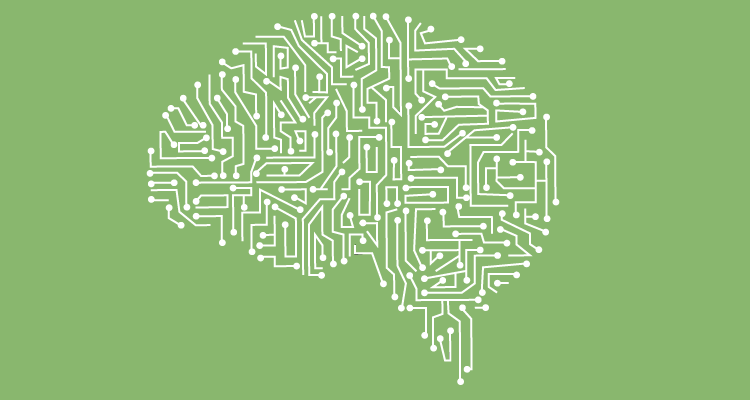Many naysayers claim that artificial intelligence could destroy the world, often using the storyline in “The Terminator” to prove their point. In reality, AI can do more to save the world. Fortunately, it seems as though more people are beginning to understand the benefits of AI rather than fearing it. For example, Strategy Analytics found that 41 percent of consumers surveyed believed that AI would “enrich” their lives. Consider these five examples:
-
Table of Contents
ToggleSaving Lives in the Workplace
Many jobs, despite a focus on health and safety, still involve a considerable amount of risk. In an article in “Manufacturing Business Technology,” DataRPM, a Progress company, notes that risks involved for employees of U.S. factories can be alleviated by the use of the Industrial Internet of Things and predictive maintenance.
The article states, “There is an estimated $40 billion worth of outdated machinery currently in use at United States factories, and that figure does not account for equipment that is simply overdue for maintenance. As that machinery inevitably begins to break, it will lead to loss of uptime, breach of service-level agreements. Also been known for quality issues, warranty claims, and, unquestionably, workplace injuries. In fact, as much as 30 percent of workplace deaths happen during maintenance activities.”
DataRPM then notes the role of AI and cognitive computing in improving the link between maintenance and workplace safety. Rather than purchasing new equipment, companies can use connected technologies to lengthen their machinery’s lifespan. These technologies address issues before they put factory workers at risk. In addition, AI can take on more roles within the factory, eliminating the need for humans to work in potentially dangerous areas.
-
Saving the Environment
Up to now, there has been no way to fully understand the impact that human beings and economic development have on the environment, including their adverse effects on plant and animal life. But that may soon change, as AI provides the necessary tools to collect, sift, and organize extraordinary amounts of data.
An extensive article in “The Guardian” illustrates the numerous ways that AI can help us prevent further damage and better understand how to address development needs while focusing on sustainability. The article discusses how Microsoft and other companies are using AI to assess land use patterns via land cover maps. Increased understanding of the patterns enables better decisions about using land and deploying appropriate conservation tactics.
Indeed, AI technology is revolutionizing the modeling and management of environmental systems. Scientists and policy makers can use the information gained to help maintain biodiversity and the ecosystem for generations to come. Such modeling efforts include projects like EarthCube, which examines the impact of particular actions on specific aspects of the earth’s ecosystem, including its crust and oceans.
-
AI Can Save the World by Saving Cities
Smart cities, powered by AI platforms, are changing the very fiber of urban areas. AI technology is addressing old social ills in new ways.
According to The Motley Fool, companies like NVIDIA plan to use video cameras to connect to AI platforms to improve how cities are managed. For example, it has a Metropolis artificial intelligence platform for cities. It can use those cameras to monitor and discourage crime and improve traffic flow. The article relates how NVIDIA’s partnership in China has upped traffic speed by 11 percent in one test city.
Other improvements to cities include using AI and robots to assess and improve a city’s utility infrastructure. Fast Company observes that this technology could help save American water utilities considerable money while driving greater enhancements to water conservation efforts and water quality.
In addition, an article by Tech Emergence offers other insights on how AI can improve city living and development. For example, in 2017, GE announced it will provide San Diego with the largest smart city IoT sensor platform, installing an initial 3,200 CityIQ sensor nodes throughout the city. Data from the nodes can be used to help drivers find parking spots, assist first responders, and pinpoint hazardous intersections.
-
Saving People
AI bots now being used on social media platforms like Facebook may be saving the lives of people at risk of committing suicide, thus demonstrating how a very inhuman tool can gauge the human need for help. As a “Fast Company” article explains, Facebook is making an effort to help people through AI technology: “In March, the company announced a pilot project in the U.S. that would leverage AI to proactively identify Facebook posts signaling a user’s suicidal intent and expedite bringing those posts to the community operation team’s attention.”
Facebook’s AI tools perform AI text analytics on text posts and live video for any signs of people at risk of suicide. Which appears to be a very beneficial strategy. The article states that, in one month, Facebook’s AI technology “identified more than 100 instances. All around the globe that required intervention by first responders.” The company “also found that reports accelerated by proactive detection. Those requiring immediate attention. Those have been escalated to first responders twice as fast as those reported by users.”
-
Saving Human Rights
More and more, organizations are leveraging AI to create social change. An article from TOPBOTS outlines various ways that AI bots are helping address human rights around the world, enhancing lives by raising awareness of social problems and collecting funds to help.
For example, the article explains, “Charity:Water teamed up with Lokai and AKQA to create Yeshi, a Facebook Messenger chatbot that humanizes the water crisis in Ethiopia.” After learning about Yeshi’s difficult journey, users can donate funds to Charity:Water through Facebook Messenger.
The article also explains how AI can deliver health and social services to more people. GYANT is a Facebook Messenger-based healthbot that guides users through a series of questions about the symptoms they are experiencing to help determine whether they’re likely to have Zika. Rather than wait for an appointment with a healthcare provider, users can get an immediate personalized answer. All this from GYANT to guide their future steps.
Then, there is Sensely, a digital nurse bot that supports healthcare professionals by taking on the job of monitoring whether patients are adhering to their prescribed treatments. Lastly, there is Ellie, “a digital therapist … [that] can interview patients. It can detect depression and anxiety by analyzing words, facial expressions, and tone.” Human therapists are still vital. The AI helper can do some of the work and reach more people to provide care.
More Human Than Human – AI Can Save the World
AI addresses social issues in a human way without needing the manpower to do so. It is working toward saving the planet from all angles. This includes reducing deaths, addressing health problems, increasing sustainability, and enhancing the quality of life for all.















